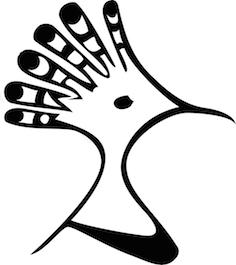Down To Business
OK, today I buckle down and make some headway on the preface. I plan on beginning by situating the essays in the context of my work and the field of biblical studies: throughout the twentieth century, biblical scholars have grappled with the hermeneutical problem of how to connect their technical study of the grammar and historical context of the Bible with the ways that the Bible can and should affect the lives of contemporary readers. They have suggested numerous work-arounds and improvements for hermeneutical deliberation, but none seems to have won general assent.
Some people sense no problem with the status quo; they’re content to puzzle over unusual verb forms, odd usages of familiar words, the likelihood or unlikelihood of people raising other people from death. A considerable number of readers, though, express dissatisfaction with an interpretive method that excels at retrospect, but falters when interpreters try to bring the Bible to bear on contemporary life.
In these essays, I propose that readers who want something more than, or something different from what conventional critical scholarship offers may need to rethink some deeply-held presuppositions of twentieth-century biblical analysis. The method — inasmuch as we can appropriately define this array of interpretive moves as a method — performs admirably, but it does not exhaust the work of interpretive reflection, nor does it set the terms on which further reflections may proceed.
Practitioners of contemporary technical scholarship frequently shore up the foundations of their discipline with appeals to particular axioms, axioms whose soundness I have come to doubt. Many scholars adhere to the myth of subsistent meaning, the premise that “meaning” constitutes a characteristic quality that inheres to a text. An exegete’s job, then, requires her to distill that meaning from its raw form in the text to a purer, more manifest form. Scholars often locate responsibility for interpretive conclusions in the text itself, such that they claim, “the text requires this” or “the text permits that, but not the other.” These figures of speech serve admirably when deployed as figures, but when they take on the character of literal ascriptions of agency to inert words, they disfigure our understanding of whence meaning comes and of who stands accountable for interpretive claims. contemporary interpreters tend to treat all interpretive deliberation as a more or less close approximation of verbal communication (hence we speak of “body language,” and suggest that “his expression spoke volumes”). At the same time, biblical scholars tend to operate as though one and only one interpretation rightly, finally, ascertains the [subsistent] meaning that the text expresses. Finally, the adherents of current interpretive conventions warn that if we depart from these axioms — if we allow that no lode of meaning lies embedded in our texts, that we (and not texts) sponsor and permit interpretations, that communication and interpretation constitute phenomena of far greater intricacy than the verbal paradigm allows, and that we may honestly and fairly consider the possibility that a given expression may mean several different things — if we yield on these points, the exquisite architecture of human communication (and especially, of course, of God’s communication with humanity) rapidly declines into inarticulate grunts and brutality.
The rumors of civilization’s demise, of course, would be greatly exaggerated. The essays included here explore the terrain of meaning beyond the boundaries enforced by conventional technical scholars. In various ways, with various points d’appui, the essays work toward establishing the claim that “meaning” pertains to human activity and interaction rather than textual inscription; thus, people devise interpretations for which they (not the objects they interpret) must be held responsible. These essays propose that expression and meaning involve vastly more sorts of gesture than verbal communication, such that adopting verbal communication as the paradigm for analyzing “meaning” constitutes a misleading oversimplification. Just as gestures, appearances, smells, and sounds may engender various indeterminable interpretations, so also verbal expression may issue in more than one meaning. All of this holds true not in some dystopian Looking-Glass World where nothing mean anything and everybody runs roughshod over any weaker communicator, but in the world we inhabit here and now. If anything threatens the well-being of the priase of God and the harmonious social order, it is more ominously the imposition of falsely-constricted meaning onto the demonstrably plurivalent economy of signification that prevails outside the rigidly-enforced domain of monovalence and correctness.
(Whew! That’s enough for one go. Plus, I want to say more about White Guy Theology, maybe later.)
